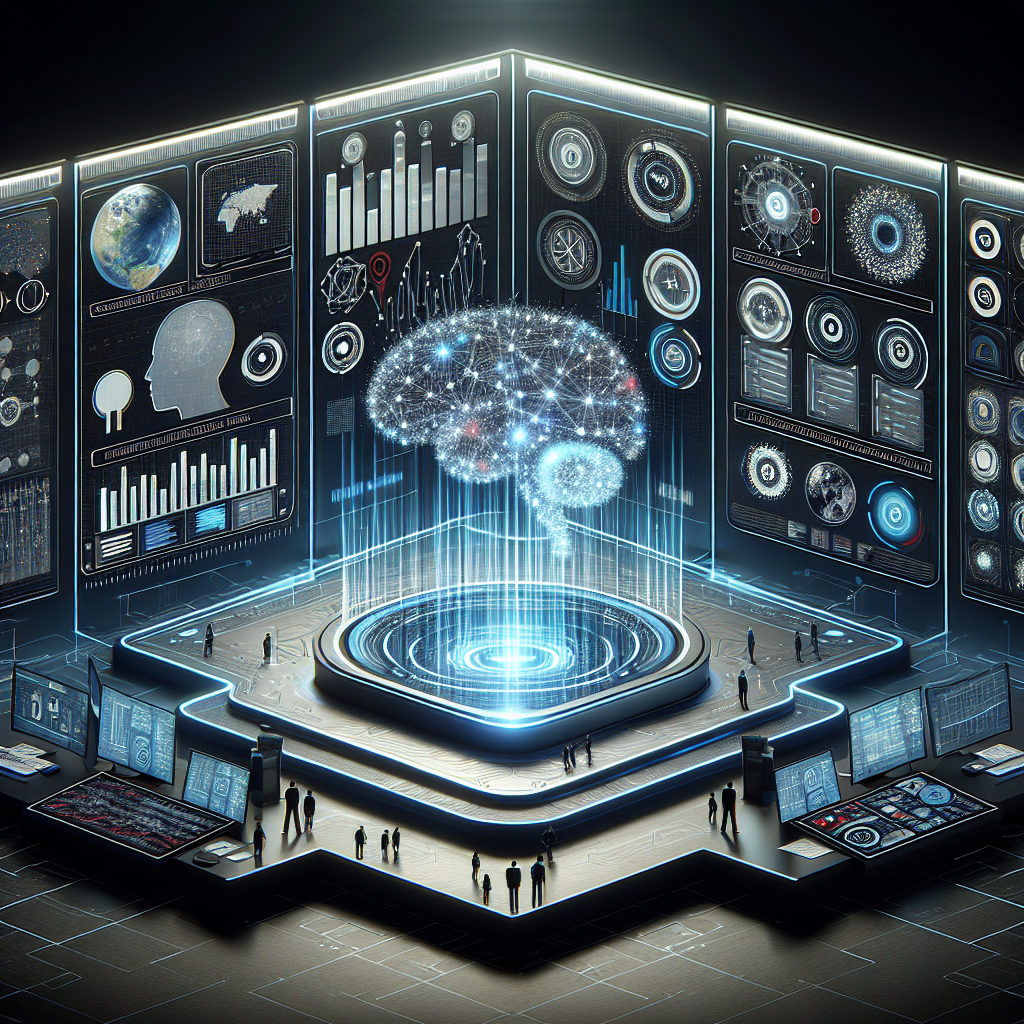In today’s fast-paced and unpredictable business environment, organizations are constantly faced with various crises that threaten their operations and profitability. These crises can range from natural disasters to cyber-attacks to global pandemics like COVID-19. In order to effectively manage these crises and minimize their impact on the business, organizations are turning to AI-driven Business Intelligence solutions.
AI-driven Business Intelligence for crisis management involves using advanced analytics and machine learning algorithms to analyze large amounts of data in real-time and provide actionable insights to decision-makers. This allows organizations to quickly identify emerging threats, assess their potential impact, and take proactive measures to mitigate risks.
One of the key advantages of using AI-driven Business Intelligence for crisis management is its ability to process massive amounts of data from various sources, including social media, news outlets, and internal company databases. This enables organizations to have a comprehensive view of the situation and make informed decisions based on accurate and up-to-date information.
Another benefit of AI-driven Business Intelligence for crisis management is its predictive capabilities. By analyzing historical data and patterns, AI algorithms can forecast potential crises and their likely impact on the business. This allows organizations to develop contingency plans and allocate resources more effectively to respond to crises in a timely manner.
Furthermore, AI-driven Business Intelligence solutions can automate routine tasks such as data collection, analysis, and reporting, freeing up valuable time for decision-makers to focus on strategic planning and crisis response. This not only improves efficiency but also ensures that organizations are able to respond to crises more effectively and efficiently.
In the case of a global pandemic like COVID-19, AI-driven Business Intelligence played a crucial role in helping organizations navigate the unprecedented challenges posed by the crisis. By analyzing data on infection rates, government regulations, and supply chain disruptions, AI algorithms were able to provide real-time insights on the evolving situation and help organizations make informed decisions on how to protect their employees, customers, and operations.
Overall, AI-driven Business Intelligence for crisis management offers organizations a powerful tool to enhance their resilience in the face of unexpected events and uncertainties. By leveraging advanced analytics and machine learning algorithms, organizations can better anticipate, respond to, and recover from crises, ultimately safeguarding their business continuity and long-term success.
FAQs:
Q: How does AI-driven Business Intelligence differ from traditional Business Intelligence?
A: Traditional Business Intelligence relies on static reports and dashboards to analyze historical data and provide insights to decision-makers. AI-driven Business Intelligence, on the other hand, uses advanced analytics and machine learning algorithms to analyze real-time data, identify patterns and trends, and provide predictive insights to help organizations make informed decisions.
Q: What are some common use cases of AI-driven Business Intelligence for crisis management?
A: Some common use cases of AI-driven Business Intelligence for crisis management include:
– Predicting and forecasting natural disasters and their impact on operations
– Analyzing social media sentiment during a crisis to gauge public perception and sentiment
– Monitoring supply chain disruptions and identifying alternative sources of supply
– Identifying cybersecurity threats and vulnerabilities to prevent data breaches and attacks
– Assessing the financial impact of a crisis and developing contingency plans to mitigate risks
Q: How can organizations implement AI-driven Business Intelligence for crisis management?
A: Organizations can implement AI-driven Business Intelligence for crisis management by following these steps:
1. Identify key data sources: Determine the types of data sources that are relevant to crisis management, such as social media, news outlets, internal databases, and external sources.
2. Collect and integrate data: Gather data from various sources and integrate it into a centralized data repository for analysis.
3. Analyze data using AI algorithms: Use advanced analytics and machine learning algorithms to analyze data in real-time and generate actionable insights.
4. Develop contingency plans: Based on the insights generated by AI algorithms, develop contingency plans and strategies to respond to crises effectively.
5. Monitor and evaluate: Continuously monitor the situation, evaluate the effectiveness of the contingency plans, and adjust strategies as needed to manage the crisis.
In conclusion, AI-driven Business Intelligence for crisis management offers organizations a powerful tool to enhance their resilience and agility in the face of unexpected events and uncertainties. By leveraging advanced analytics and machine learning algorithms, organizations can better anticipate, respond to, and recover from crises, ultimately safeguarding their business continuity and long-term success.

